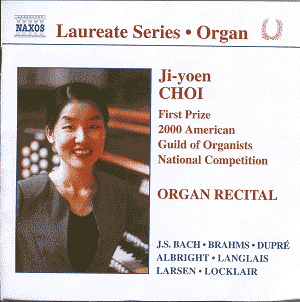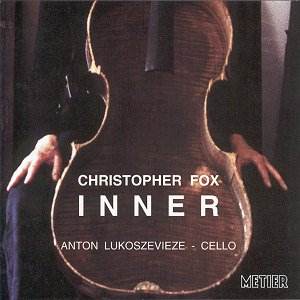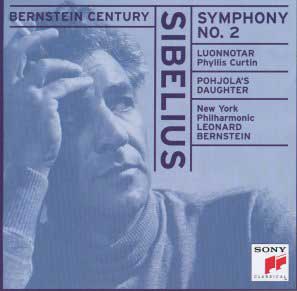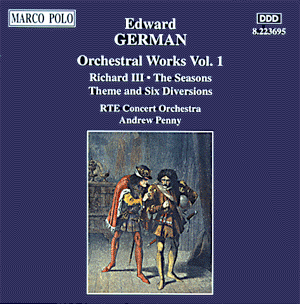 Composer: Ji-yeon Choi
Composer: Ji-yeon Choi
Works: J.S. Bach – Prelude and Fugue in C Major BWV 547; Sonata No. 4 in E Minor BWV 528; William Albright – 12 Etudes for Small Organ, Organbook III, Vol. 2: Jig for the Feet (Totentanz), Nocturne, Un poc’ allegro; Johannes Brahms – Fugue in A flat minor WoO 8; Jean Langlais – Fête; Libby Larsen – Aspects of Glory, III: Tambourines; Dan Locklair – Ayre for the Dance; Marcel Dupré – Variations sur un Noël op. 20
Performers: Ji-yeon Choi, organ
Recording: Chapel of Resurrection, Valparaiso University, Indiana, USA, 19-20 August 2000
Label: Naxos
Ji-yeon Choi’s organ recital presents an engaging cross-section of the organ repertoire, juxtaposing the titanic works of J.S. Bach with modern compositions by William Albright, Libby Larsen, and Dan Locklair. This thoughtful program not only showcases Choi’s technical prowess but also her interpretative maturity as she navigates a timeline that spans from the Baroque to contemporary expressions, each with their distinct idiomatic demands and historical contexts.
Choi’s performance of Bach’s Prelude and Fugue in C Major BWV 547 opens with a commendable clarity of voicing. The three-part texture in the Prelude is particularly praiseworthy, although the pedal note occasionally veers into an unpleasant register that detracts from the overall sonority. In the Fugue, however, a slower tempo blurs the incisive entries of the subject, resulting in a less cogent exposition than one might hope for. This is somewhat redeemed in the Andante of the E minor Sonata, where Choi deftly employs registrations that evoke the ethereal qualities of the glass harmonica, a notable interpretative choice that adds a unique timbral color to the performance.
Transitioning to Albright’s works, Choi captures the stark contrasts inherent in the composer’s style. The “Jig for the Feet,” with its staccato passages, conveys an almost frenetic energy characterized by relentless drive. This is juxtaposed effectively with the serene and contemplative Nocturne, where Choi’s sensitive touch allows for a shimmering, translucent quality. The Finale, “The Offering,” showcases Choi’s flair for the dramatic, echoing Messiaen’s high spirits while navigating complex clusters with ease and conviction.
Brahms’ early Fugue in A flat minor WoO 8 is a testament to the composer’s burgeoning mastery. Choi’s interpretation reveals the intricate counterpoint while allowing for the romantic undercurrents to emerge, especially in the reflective conclusion. This work serves not only as a technical exercise but also hints at Brahms’ evolving stylistic language, a duality that Choi captures well.
Langlais’ “Fête” bursts forth with jubilation, and Choi’s execution of its contrasting sections is lively and dynamic, allowing the celebratory atmosphere to shine through. The ensuing “Tambourines” by Larsen features rhythmic playfulness and a tonal clarity that Choi navigates with aplomb. Locklair’s “Ayre,” with its insistent motifs, introduces a slightly sinister sensibility, and Choi’s interpretation balances humor and seriousness, reflecting the piece’s clever construction.
Dupre’s “Variations sur un Noël” presents a formidable challenge, and while Choi meets this with a performance that showcases technical agility, her interpretation occasionally leans towards the comical rather than the rapid in the Vivace variation. This choice may be seen as a missed opportunity to harness the piece’s inherent vigor.
Despite the breadth of Choi’s programming and her generally strong performances, the recording quality leaves some room for improvement. The organ sound, while distinct, often lacks the warmth and resonance one would expect from such an instrument, detracting from the overall listening experience. The absence of detailed specifications from Naxos about the instrument used compounds this issue, as one cannot fully appreciate the nuances of Choi’s registration choices without knowing the capabilities of the organ.
This recording ultimately presents a well-rounded exploration of organ music, combining historical reverence with contemporary flair. Ji-yeon Choi demonstrates a commendable command of a diverse repertoire, though the technical and sound quality aspects detract from an otherwise engaging recital. The performances are generally solid, but a nuanced understanding of the organ’s voice would elevate the experience further.



